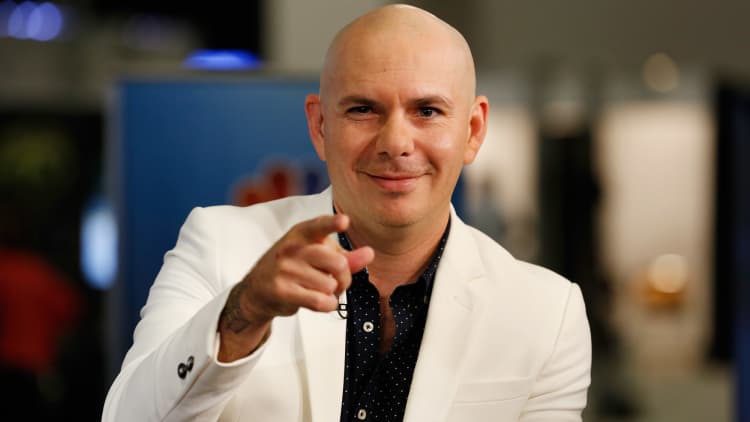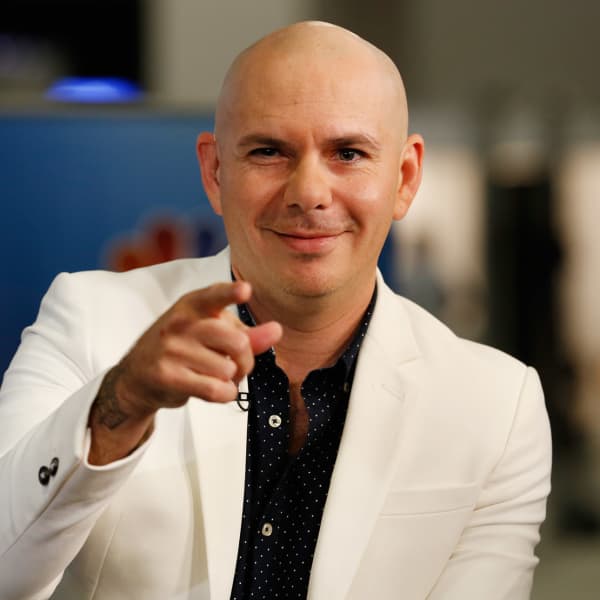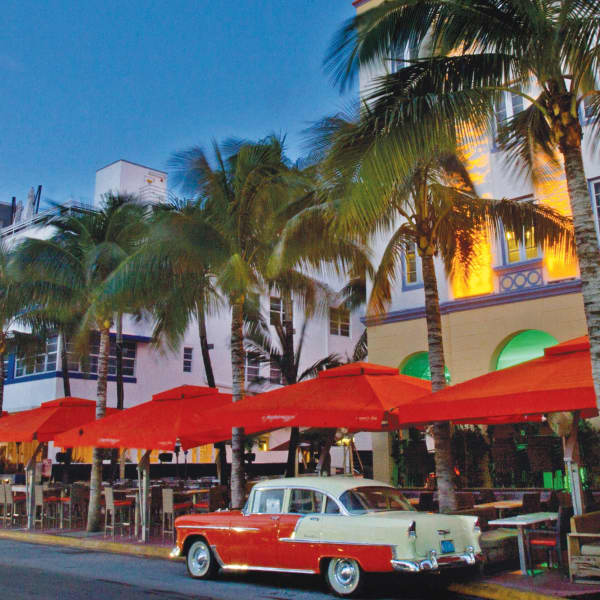While Silicon Valley remains the world's leading hub for tech start-ups and entrepreneurial energy, South Florida is cultivating a new generation of innovators.
Miami has become a hotbed of entrepreneurial activity. Last year alone saw $1.38 billion invested in South Florida start-ups. Start-ups based in the greater Miami area snagged three quarters of the state's total venture capital take and more than half of all deals made, according to a 2018 year-end report published by eMerge Americas.
This week it's eMerge Americas conference, a two-day technology summit that brings together start-ups, government leaders and global enterprises. The conference, which dates back to 2012, connects talent from North America, Latin America and Europe, with the goal of infusing capital into technology-driven start-ups outside the Silicon Valley area.
"Over the last six years, eMerge Americas has served as a catalyst in order to propel innovation and investment in the region," said eMerge president Melissa Medina. "When we first launched, we did not have much interest from investors, but I can tell you firsthand that this is no longer the case — we now have investors from all over the world connecting with us and the start-ups in our showcase."

More than 100 young companies will convene onstage to pitch their business ideas in front of thousands and grab the attention of investors who can take their start-up to the next level. One of those investors is no stranger to the streets of Miami: Armando "Pitbull" Christian Perez, the Grammy award-winning artist, entrepreneur and a partner to the conference. Perez will judge the Startup Showcase Finale alongside Alex Estevez, a partner at Accel Ventures, and Jack Selby, managing director at Clarium Capital Management. For the first time this year, eMerge Americas also is launching an investor-matchmaking platform for accredited investors to directly engage and set up individual meetings with the start-up founders.
Some of the world's biggest venture investors are at eMerge, including Paulo Passoni, who was recently appointed managing investment director of SoftBank International following the launch of the SoftBank Innovation Fund, an unprecedented $5 billion investment in new Latin American tech firms.
Here are a few of the start-ups competing at eMerge Americas this year.
Aeriu
Founder: Gergely Ellenrieder (CEO)
Year founded: 2017
Headquarters: Budapest, Hungary
The Amazon era has brought with it an unprecedented and sustained e-commerce boom. Though it's been a looming threat to some of the biggest retailers that are trying to grow their business online, the internet giant has left an equally if not bigger footprint offline, in the logistics sector.
According to a CBRE survey, the average age of a U.S. warehouse is 34 years, meaning that many lack modern upgrades as the demand for industrial real estate continues to skyrocket. Add in Amazon's recent announcement to make free one-day shipping the default for Prime members and inventory efficiency becomes a heightened priority for companies that dare to compete.
Aeriu is a Hungarian start-up mobilizing drones to rethink the way companies manage their inventory.
"Human error and inefficiency is something that Aeriu is working to remove entirely," says CEO Gergely Ellenrieder.
While autonomous flight and drone technology continue to face a variety of regulatory hurdles, Aeriu has sidestepped the use of specialized aircraft and instead embraces commercial drones to collect data in the cloud and automate its measurement in-house.
The start-up's approach has caught the attention of a company that's arguably known best for its massive stores and endless aisles of inventory: Ikea. The Swedish retailer began using Aeriu software in the Soroksár store in Budapest earlier this year, putting the technology on trial for customers seeking real-time information about a product's availability.
EveryMundo
Founders: Anton Diego (CEO), Seth Cassel (President)
Year founded: 2006
Headquarters: Miami
Over the past two decades, airlines have spent tons of time and resources attempting to catch up to the top online travel agencies in an exceedingly saturated industry. That's where EveryMundo comes in. The start-up is a tried and true software company that has developed software products to help airlines compete online.
EveryMundo works with over 40 airlines, in 30-plus languages and has a presence in more than 120 countries.
"EveryMundo's technology empowers airline customers to find the best fares on the right days of travel," said Seth Cassel, president of EveryMundo. "However, EveryMundo's greatest benefit to the airlines may be the change in mindset we are inducing among airlines' digital executives to view their digital presence as a series of products rather than projects."
According to Cassel, airlines have overbudgeted on projects that are partially obsolete upon launch or end up failing entirely.
"EveryMundo breaks that cycle by offering airlines digital products living on the EveryMundo platform that accomplish their digital-user experience goals," Cassel said. "And EveryMundo takes responsibility for the launch, maintenance and innovation of these user-experience technologies."
GoGig
Founder: Chris Hodges (CEO)
Year founded: 2016
Headquarters: Fort Lauderdale, Florida
Finding a new job can be a never-ending headache. In fact, reports have suggested that it takes one month to find a job for every $10,000 of a paycheck an individual would like to earn. So in theory, a search for a $60,000 paying job could take six months.
Anonymous job search platform GoGig is looking to speed up that search. "At GoGig we are providing currently employed and actively seeking professionals a new way to network based on their career desires without revealing their identity," said Chris Hodges, founder and CEO of GoGig in a LinkedIn post.
The start-up uses AI and algorithms to match users with hiring companies based upon education, employment history, expectations for one's next career move, personality and location. The candidates are displayed to hiring managers in order of match percentages.
Lula
Founders: Matthew Vega-Sanz (CEO), Michael Vega-Sanz (President)
Year founded: 2016
Headquarters: Boston
Credit Karma estimates that Americans spend just over $4,000 a year personally on Uber and Lyft rides. This figure is based on an average Lyft and Uber ride charge of about $22 and assuming three to four trips per week — an assumption based on data from the U.S. Department of Transportation's National Household Travel Survey and American Automobile Association's American Driving Survey.
For some college students, that's almost an entire semester of courses, which is the realization that Matthew Vega-Sanz and his twin brother Michael had during their time at Babson College. Lula was born out of a late-night pizza run and evolved into an idea that's reached more than 350 campuses across the country.
Lula is a free app that allows college students to rent out each other's cars. Unlike traditional ride-share services, which pick riders up within minutes, Lula users have to plan their rentals in advance for as little as $5 an hour or $30 a day.
"Babson is in a secluded area, and we didn't have many options," said Michael Vega-Sanz. "We said, 'Let's take an Uber,' but it was going to be $30 to pick up an $8 pizza. As two broke college students without access to a car, we realized then that college students have been neglected by transportation companies."
For students looking to pay down their student loans, the Vega-Sanz twins claim that users on the peer-to-peer platform can make up to $250 a month. After recently closing on $620,000 in funding, the start-up is in the midst of another fundraising campaign, with the goal of providing access to cars, bikes, scooters and any other form of transportation that makes pizza cravings just a bit more affordable.
Unima
Founders: Jose Luis Nuno (CEO), Laura Mendoza
Year founded: 2016
Headquarters: Guadalajara, Mexico
The spectacular failure of Silicon Valley unicorn Theranos — and Elizabeth Holmes' fall from grace — has given the blood- testing business a bad name, but investors and start-ups in the sector are undeterred.
Diagnosing diseases like tuberculosis is a process that can be expensive and time-consuming. Unima claims it has created a way to do so without any lab equipment and for as little as $1. Using a low-cost blood test for infectious diseases like tuberculosis or HIV is only the beginning.
Through a drop of the patient's blood on diagnostic paper, a chemical reaction is created that can then be photographed on the strip of paper through Unima's mobile app and return the assessment just 10 minutes later. Founder and CEO Jose Nuno claims an average accuracy of 96%, versus a 75% accuracy for current laboratory tests that cost $20 on average in the U.S.
Unima's goal is to create cost-effective diagnostic solutions that increase the chances of survival and overall quality of life for 2 billion people in the developing world.
—Additional reporting by Donovan Russo





